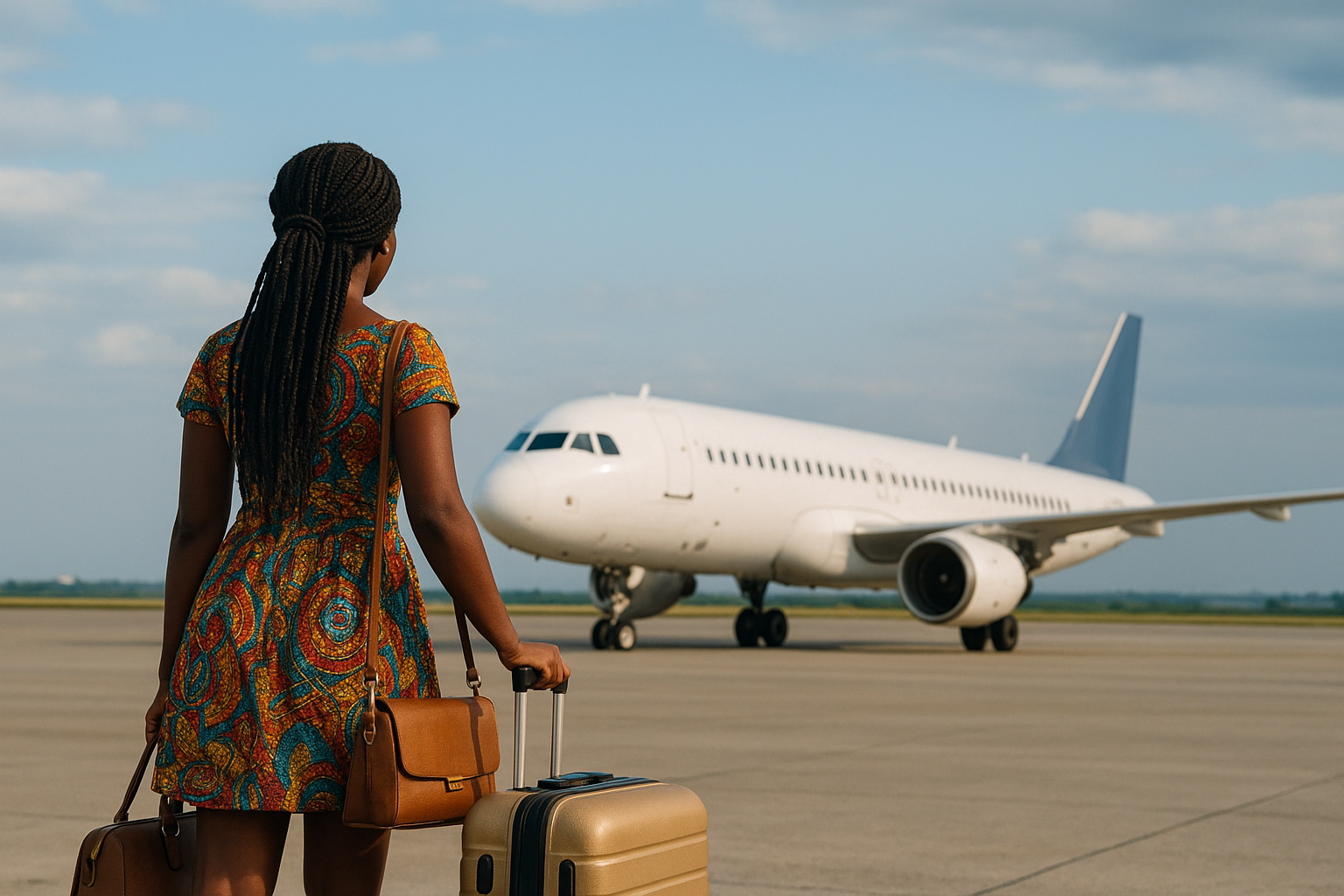A shift is underway across Africa. A great reconnection is happening, as nations from Benin to Ghana open their doors and arms to the global African diaspora. These countries are now going beyond issuing tourist visas. They have offered a home, heritage, belonging, and citizenship. Nigeria, the continent’s demographic and cultural powerhouse, risks sleeping through the revolution by getting tangled in the red tape of its own making.
The contrast is frustrating. The Republic of Benin is making international headlines by granting citizenship to Afro-descendants and strategically positioning itself as a welcoming homeland. The Afro-Caribbean population is discovering their spirituals connections back to Africa and this is holding on tourism, experiences, and our stories by the neck. Everyone is telling their story, narratives as they have imagine it in a way for it to appeal to a global audience. As detailed in a recent Guardian report, Black Brazilians, many of whom trace their lineage to the Dahomey Kingdom, are finding a real path back to the continent. Beyond sentiment, it is a state-led strategy to reverse the effects of the slave trade, build bridges, and reap the demographic and economic dividends.
Further down the coast, Ghana has already provided the blueprint. Its 2019 “Year of Return” campaign was a masterclass in national branding and nation building. By strategically aligning a historical commemoration, 400 years since the first enslaved Africans arrived in Virginia, with a heavy-hitting marketing push involving global icons like Beyoncé and Jay-Z, Ghana captured the world’s imagination. The results were immediate and transformative. Tourists, pilgrims, and investors thronged to Accra, injecting an estimated $1.9 billion into the economy and permanently placing Ghana at the centre of the diaspora tourism map. It was a clear demonstration of how government action and policy can translate cultural resonance into currency and economic benefits to those back home.
Even more remarkably, consider the story of Rwanda. A nation once synonymous with genocide has miraculously rebranded itself as a premier destination for high-end tourism and international conferences. The “Visit Rwanda” campaign, famously displayed on the sleeves of Arsenal football jerseys, was the glossy finish on a deep, structural reform. Rwanda’s government understood that access is paramount. It instituted a visa-on-arrival policy for citizens of every African nation and a seamless online system for international visitors. This radical openness, combined with security and infrastructure development, turned a tragic past into something aspirational.
Back to the Nigerian contradiction……We possess an unequalled cultural resource base. Nollywood is a global phenomenon. Afrobeats artists are selling out stadiums from London to New York. Yet, at a time when Black Americans and other diaspora communities are expressing a desire to connect with Africa, often driven by social and political fatigue in the West (with the state of things in their countries- immigration policy somersault’s, disgruntled and frustrated people of African decent increasing), Nigeria remains an inexplicably difficult country to access. Our ill-advised visa restrictions now function as a giant “Keep Out” or “Don’t Come Here” sign.
The most glaring missed opportunity lies with our own kin. Brazil is home to the largest African population outside of Africa, with many identifying as practitioners of Ifa (traditional Yoruba religion originating in West Africa, characterized by its earth-centered spirituality and belief in a supreme being, Olodumare, and various deities (Orishas). For these Brazilians, cities like Ile-Ife, Osogbo, and Oyo are more than tourist sites. They are regarded as their spiritual Vatican or Jerusalem. Rather than facilitating mass pilgrimages to Nigeria, creating tailored heritage tours, and nurturing a multi-billion dollar spiritual tourism industry, we have allowed cumbersome visa processes to create a barrier that now forces those who seek their African roots to look elsewhere.
The argument that we must maintain these barriers for security or administrative reasons no longer holds water. Modern technology allows for efficient and secure e-visa and visa-on-arrival systems, as demonstrated by Rwanda and dozens of other nations. The failure is not one of capacity, but of WILL. The will power to think, imagine, build, not for self, but for country!It is a failure of imagination.
There are things we can start doing right away. Nigeria must radically dismantle ineffective systems and overhaul its current approach to tourism and diaspora engagement. What if we start instituting a visa-on-arrival policy for all African passport holders and members of the African diaspora? While, for all others, a streamlined, user-friendly e-visa system should be the standard, not the exception. What if we launched a national homecoming initiative? Like Nigeria’s own version of the “Year of Return.” A “Great Nigerian Homecoming” campaign that is backed by federal budget and public-private partnerships. What if we actively courted the Yoruba-Brazilian community, the Afro-Caribbean nations, and Black American heritage groups? By inviting them, making them feel wanted, and showing them that the path home is clear. These are What-if’s that can become certainties.
The diaspora is knocking. They are looking for a home, for connection, for investment opportunities. Ghana, Benin, and Rwanda have heard them. Nigeria, with the richest culture and the largest population, cannot afford to remain deaf to the call. The door of this opportunity is not closed by force, but by choice. It is time to choose to open it.


